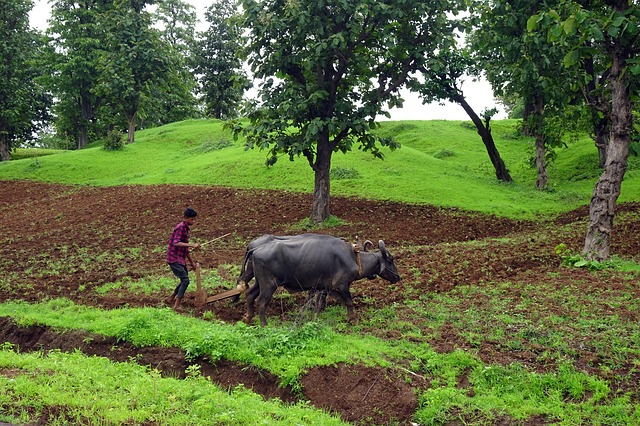Research project led by University of Birmingham promises water boost for farmers in India
- October 23, 2020
- Posted by: Elaine Coles
- Category: Agriculture, Research Papers, Asia

University of Birmingham water experts have designed a low-energy, high-efficiency means of purifying water in India’s rural farming communities, which could allow farmers to safely use high-saline groundwater and wastewater to grow crops.
Working in the Gujarat region of India, scientists in the Birmingham-led INDIA-H20 project have used emerging membrane technologies that allow saline groundwater and domestic/industrial wastewaters to be safely and efficiently recycled.
Based on field work in the village of Lodhwa, which confirmed the poor quality and availability of water in the region, scientists have now designed a system that can recover 80% of the unusable groundwater fed into it – producing usable water with low energy consumption.
They are also developing ways of growing special crops using the brine solution produced as a result of desalination, as well as progressing plant-based treatments to recycle domestic wastewater and developing solar-energy to break down pollutants in industrial wastewater.
Groundwater is the major source of water across India, with 85% of the population dependent on it. Much of this groundwater, however, is of poor quality and water below 60% of India’s countryside is too saline for human consumption or conventional agriculture. Over-extraction and pollution of groundwater are also making it more difficult to access clean water.
Philip Davies, Professor of Water Technology at the University of Birmingham, commented:
“INDIA-H2O is developing, designing and demonstrating low-cost water treatment systems for saline groundwater and for domestic and industrial wastewaters in Gujarat, where over-extraction and pollution of groundwater makes it more and more difficult to access clean water.
“Combining novel engineering solutions with new reverse- and forward-osmosis membrane technologies should substantially reduce energy consumption – allowing efficient operation of these systems in rural India using solar energy. They should increase the amount of drinking water extracted from groundwater by 50%.”
The new technology should also enable cultivation of halophytic crops – salt-tolerant plants usually found in areas such as in saline semi-deserts, mangrove swamps, marshes and sloughs and seashores. Some species are high yield and nutritious, with important potential to supplement diet.
Professor Davies continued:
“Novel use of halophytic plants in an integrated water management system to eliminate harmful brine discharges and produce commercial crops will represent significant progress in water management in India,” commented “Such crops are rarely commercialised in India and little is known about the native species and their potential for use with desalination brines.”
Over the next decade, the number of people affected by severe water shortages is expected to increase fourfold. Of the 2,700 billion m3 hike in water demand forecast for 2030, some 468 billion m3 (17%) is expected to occur in India.
Desalination of brackish water and recycling of wastewater hold potential to fill the widening gap, but the cost of energy and the investment in equipment required for desalination and recycling has limited implementation of these technologies so far.
The INDIA-H2O consortium comprises 18 participating organisations from across EU and India, including universities, research institutes, industries and NGOs. Consortium members have been working in teams, each dedicated to a specific work package – for example groundwater desalination, phytoremediation, industrial systems, control systems, water governance, and business development.
